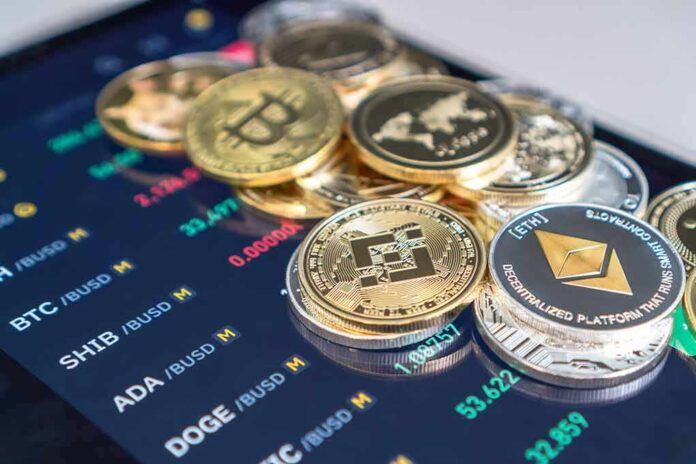Authorities are sounding alarms about an alarming rise in imposter scams involving cryptocurrency, where scammers pose as government officials to exploit unsuspecting victims.
At a Glance
- U.S. Marshals and FBI warn public of government imposter scams using spoofed phone numbers.
- Scammers demand payments through Bitcoin ATMs or prepaid cards claiming to avoid arrest.
- Victims instructed to provide personal financial information including photos of IDs and Bitcoin deposits.
- The U.S. Marshals Service and the FBI emphasize never requesting Bitcoin payments from the public.
- Authorities urge reporting scams to the local FBI office and FTC to combat this growing threat.
Scammers Masquerading as Government Officials
The U.S. Marshals Service (USMS) and FBI report a distressing surge in scams where fraudsters impersonate law enforcement officials. These scammers contact individuals, pose as U.S. marshals or court officers, and demand supposed fines to prevent arrest related to identity theft or jury duty. Victims, manipulated through intimidation, are instructed to make payments via Bitcoin ATMs to avoid prosecution.
Using sophisticated tactics, scammers offer convincing details like badge numbers and names of real officials while utilizing spoofed government phone numbers. This method creates an illusion of legitimacy that many fall victim to. Victims often report significant financial losses, particularly those instructed to withdraw a large portion of their assets, deposit into digital wallets under the false pretense of the money being returned after cooperation.
Vigilance: A Vital Defense
The scams do not end with a single call. In many cases, another scammer, still posing as a U.S. Marshal, will contact victims again. They provide them with supposed options like hiring a lawyer or making additional payments. This repeated contact increases the confusion and pressures victims to comply further with scammers’ demands. Moreover, scam artists request sensitive personal information like photos of driver’s licenses and QR codes from Bitcoin deposits, exploiting personal data.
“The U.S. Marshals Service WILL NEVER ask for credit/debit card/gift card numbers, wire transfers, or bank routing numbers, or to make bitcoin deposits for any purpose,” said the Office of Public Affairs.
To combat this, the USMS and FBI strongly urge anyone targeted by these scammers to report the incident to their local FBI office and the Federal Trade Commission (FTC). Authorities also stress that official agencies will never request Bitcoin transactions or ask for personal financial information over the phone.
Community Efforts and Resources
There has been notable growth in imposter scams, particularly in states like Colorado, Louisiana, North Carolina, Ohio, Texas, Pennsylvania, Florida, Maine, and New England. A recent scheme involves impersonating a Customs and Border Protection officer, claiming illegal activities associated with packages in the victim’s name. Victims are led to believe they have bank accounts wiring illicit funds to Mexico and Colombia, backed by fake case and warrant numbers.
Additionally, the Department of Justice has activated a National Elder Fraud Hotline for seniors who may fall prey to financial fraud. In aiding prevention efforts, tips submitted to the FBI’s Internet Crime Complaint Center (IC3) assist in investigating reported crimes, tracking trends, and possibly recovering stolen funds. Community vigilance stands as the frontline defense, ensuring everyone remains informed and protected.











